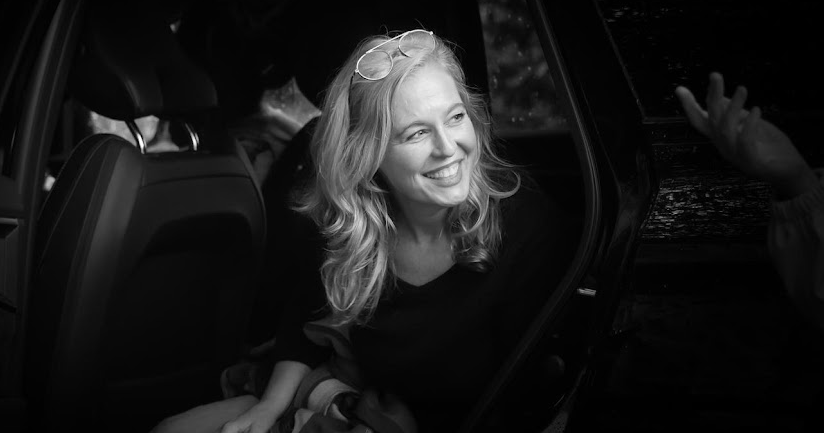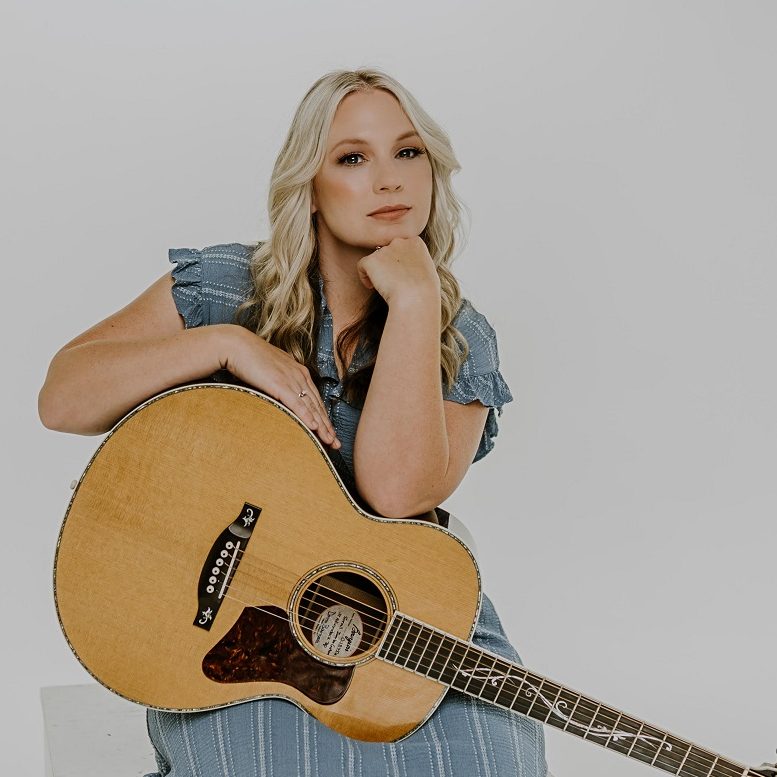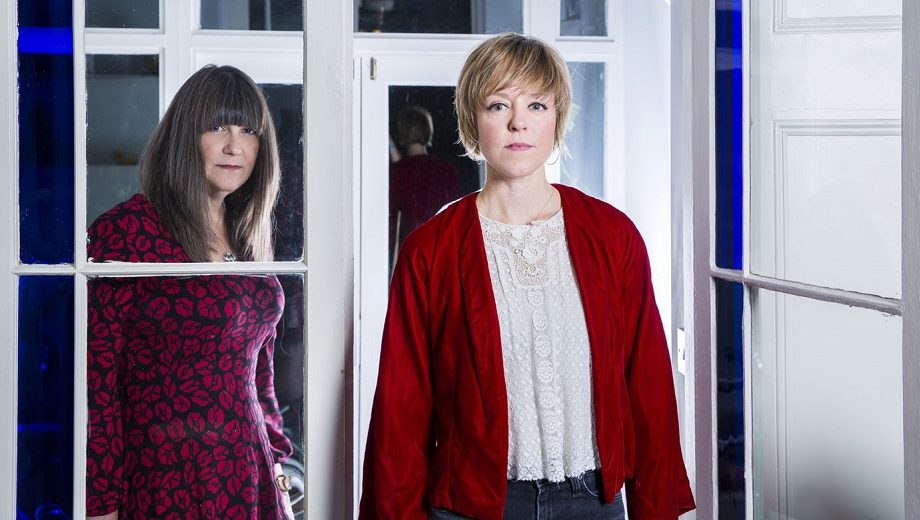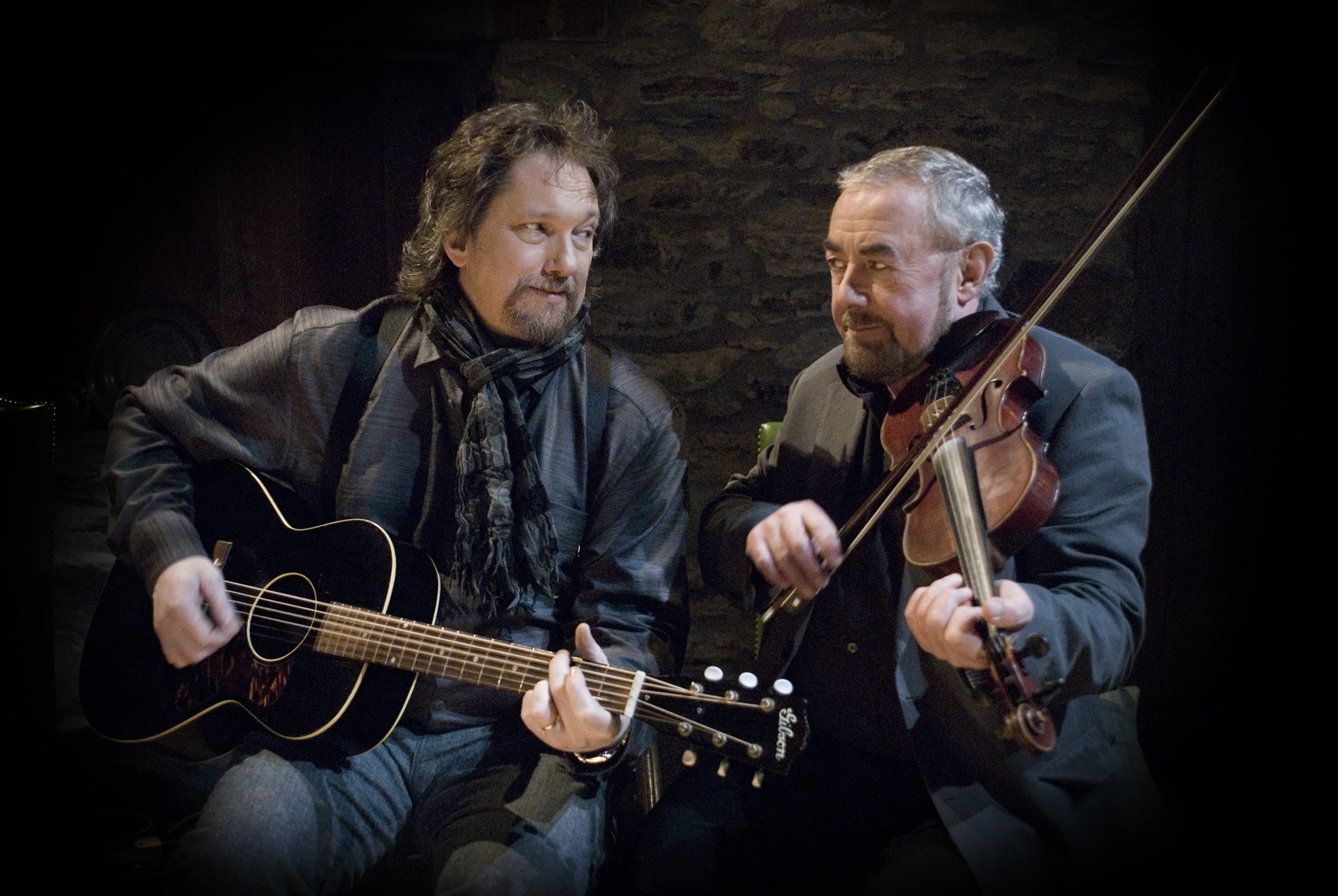Tift Merritt never thought she’d end up back in her hometown of Raleigh, North Carolina. For about 15 years she toured through America and Europe to support a number of exceptional albums, particularly 2004’s Tambourine. Released on Lost Highway Records, that R&B-influenced LP earned a GRAMMY nomination and elevated her profile among audiences who admired the detail in her songwriting and appreciated her hard-to-define musical style.
After nine years of living in New York City, Merritt wrote her ticket home in 2016 and welcomed a daughter, Jean, that same year. Following the release of a studio album in 2017, Merritt largely stepped away from performing to pursue other ambitions, including the renovation of a historic hotel called the Gables Motel Lodge in Raleigh and working as a practitioner-in-residence at Duke University in Durham, North Carolina.
“I think we have this sort of unnatural expectation of what performing life is, what creative life is, and you can’t flower all the time,” Merritt tells BGS. “So, it’s been really nice to be away. And it feels really fun to be doing some gigs and be back.”
Merritt’s new album, Time and Patience, gracefully shines a light on her musical moments from two decades ago. Most of the recordings are homemade demos; four others are studio outtakes from the Tambourine sessions. A 20th anniversary edition of Tambourine has also been reissued on vinyl.
Ahead of her first AmericanaFest appearance in more than a decade, Merritt reminisced about writing the title track of her new collection, hearing Dolly Parton’s music as a kid, and the personal decision she considers “one of the best things that ever happened.”
I’ve read that your dog, Lucy, was watching you as you recorded these demos in your kitchen. What was it like to have her with you? Was it a little bit of companionship?
Tift Merritt: Oh yeah! At the time, I lived on a farm outside of Chapel Hill in North Carolina. My boyfriend went on a trip and I stayed home to get down to writing, because I’m a Capricorn in that way. [Laughs] At that point, I had had Lucy for almost 10 years and she was used to staring at me and staring at my notebooks. But she was such a good girl and we had a lot of years where I had a great writing routine when I wasn’t on the road. I’d be writing, then taking walks, then writing… It’s interesting to think back about those days when that’s all I had to do. [Laughs] I didn’t have somebody else to take care of! What did I do with all those hours?!
What was the goal in recording these demos? Were you trying to get someone to listen, or was somebody interested in you already?
I had already done Bramble Rose [in 2002] and the label told me to go home and write a hit. But they didn’t want to spend any money for me going to the studio. Those recordings are what I sent my label and my manager. That was the big audition.
Wow, that’s a tall order: “Go home and write a hit.” How did you receive that?
You know, I was 27 years old and I realized the precarity of the position that I was in. Someone had ambitions for me, which was a really good thing. It’s a lot better than people not having ambitions for you. At the same time, I was very determined to keep my integrity. I always wanted to be a career artist. I didn’t have aspirations to have big hits. I didn’t have aspirations that were purely commercial.
I would try to be very determined to just do excellent work in my own voice. They also told me that I was not allowed to be an Americana artist, because that didn’t really exist at that time and there was no money in it. You know, it was just a weird time. It was a weird time to be a woman in that industry. It still is, it always is. And certainly, a young woman. I mean, nobody trusted me.
What did they not trust?
My judgment, my writing, my band, how I dressed myself, that I knew how I wanted my picture to appear. None of it. It was always a struggle and part of that is because I have strong artistic opinions, I’m sensitive, and I’m not stupid. I came out of a very rigorous writing program and to walk into Nashville where it’s like, “Oh no, it’s not a hit,” I’m like, “That’s not criticism I can do anything with.” Again, I was glad that people had ambitions for me, but [I was told] my songs aren’t good enough. My band wasn’t good enough. And that sort of added up to, I’m not good enough.
The label would trust [the album’s producer] George Drakoulias, but they wouldn’t trust me. And this is not an unusual story: “You don’t trust an artist! And you certainly don’t trust an artist who thinks they’re a writer!” I think there was very much a power dynamic at that time, where you separate the singer from the band, and you separate the singer from the song, and you can get them to do what you want to do. I didn’t want to do any of that.
Your band was such an important part of your sound. How did you put them together?
Well, I was married to the drummer and I didn’t want to be slick Nashville. We were all North Carolina people. We came up together, cutting our teeth in clubs. The label did not want my band to play on Tambourine. And so that band was Mike Campbell, Neal Casal, Maria McKee, and Don Heffington. I trusted George enough to surround me with people who were all friends of Maria McKee, basically, and spoke the same language as I did.
Being from North Carolina, did you grow up around bluegrass? Or did that influence your musical direction at all?
I think the Everly Brothers and harmonies and acoustic instruments did. I wasn’t totally into bluegrass. I was more into songs. My dad had an extremely eclectic record collection, a lot of which was influenced by the radio, which was eclectic at that point. He had Aretha Franklin and Bob Dylan and Dolly Parton and all sorts of stuff. He was real song-oriented and kind of a folkie himself. Lots of Dylan songs, lots of finger picking. So, in some way, I would say that I’m more of a folk musician because I learned to play from my father by ear and he learned by picking out the songs that he heard that he loved. They were all that sort of “touch your heart” kind of thing.
Were there any musicians whose melodies inspired you?
I can remember singing Dolly Parton songs with my dad, driving carpool. And she always has such amazing melodies. There were some amazing pivotal records for me, like Emmylou Harris’ Quarter Moon in a Ten Cent Town and Bonnie Raitt, Bonnie Raitt. Also, as a writer, those early Joni Mitchell records. She is so creative, melodically and with the guitar. It’s never boring.
I always think I’m a much better writer than I am a musician. I try to bring, first, a rigor to what I’m trying to say in words, that it’s something worth saying. And then I try to do the same to the melody, so it’s something worth hearing. It’s not necessarily something fancy, but it’s something interesting and layered.
How old were you when you picked up the guitar?
I started picking it up from my dad, probably at 12 or 13, when all the boys were starting to do it. It was like [in an unimpressed voice], “Oh my God, I can do that, too.” Probably in my middle teens is when I really got into it. I didn’t think I could sing. I didn’t think people would come to a show or anything like that. I just loved doing it and I thought I would be a writer.
When did that shift for you?
In my early 20s. I started a band and we had some sparks kind of quick. That was really lucky. We were in the right place at the right time in Chapel Hill. And then I just didn’t stop getting gigs… until I did!
Have you played a lot over the last nine years?
I toured with my daughter for the first two years and then I said, “You know what, kiddo? This isn’t enough for you.” I thought she deserved roots. At the time, that felt like a big failure, like I hadn’t turned a corner where I’d get a bus and a nanny and make all of that doable. Seven years later, I think it was one of the best things that ever happened. Because I was able to – for the first time in my adult life – not be on the road and not be trying to fit into the creativity that is pretty narrow that the record industry offers. I mean, it’s the “three minutes and 30 seconds.”
So, I ended up doing a lot of other things that made me feel like I was more of an artist, rather than less of one. I’ve also had this incredible time raising my daughter. We actually just did our first real tour together in Europe and she loved it! I mean, I’ve jumped out here and there and done shows, but my focus has been on other things, mainly my daughter and figuring out how to take care of us.
On the song “Time and Patience,” there’s a glimmer of hope. It’s like you’re saying to yourself, “Hang in there. You can do this.” And there’s a verse where you’re telling somebody else, “I believe in you, too.” Do you remember what was going on in your life at that moment?
I do! I remember very, very much so and I do remember writing that song to myself about how frustrated I was, that nothing I was writing was a hit. I often get insomnia, especially when I’m writing. Like, I can’t get it out of my head. And I really did see the sun come up and I got up and I wrote that song, and then I made grits. Grits are such a good thing when you’ve had insomnia and go back to bed!
It’s funny because my dad has always loved that song. I am not somebody who looks back a lot. I’d much rather look forward. But it’s funny to hear that song now, where I was kind of trying to get myself through something really specific. And now, I’m in a place where my life is not at all what I imagined it to be. But it’s actually better than I imagined it to be and I couldn’t have imagined it. That feels like the timing is special. Maybe that was one of those songs that I didn’t really understand then that I understand a lot better now.
Photo Credit: Morgane Imbeaud



